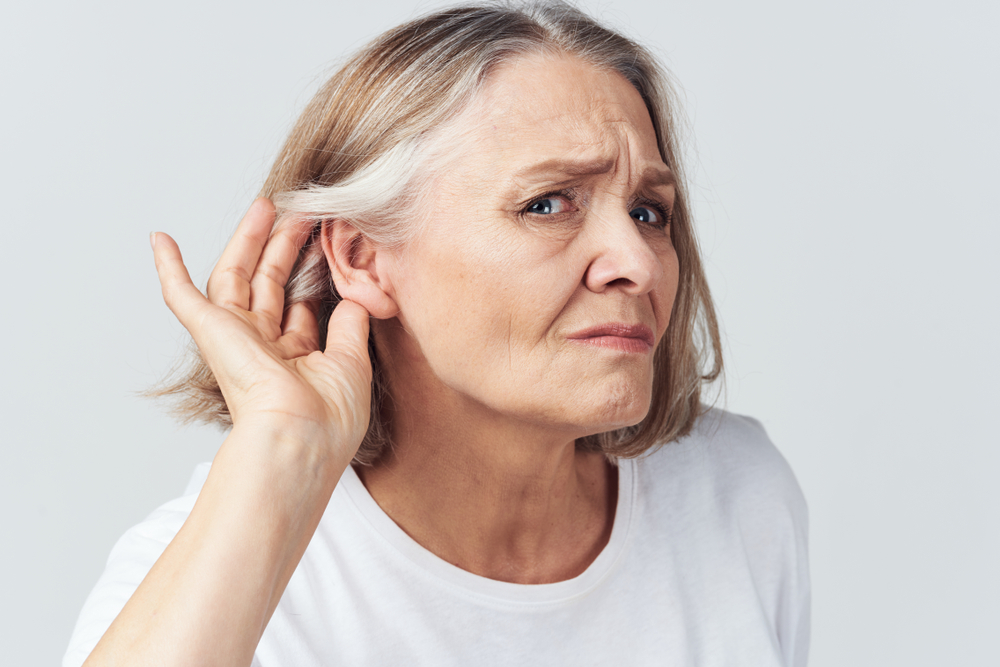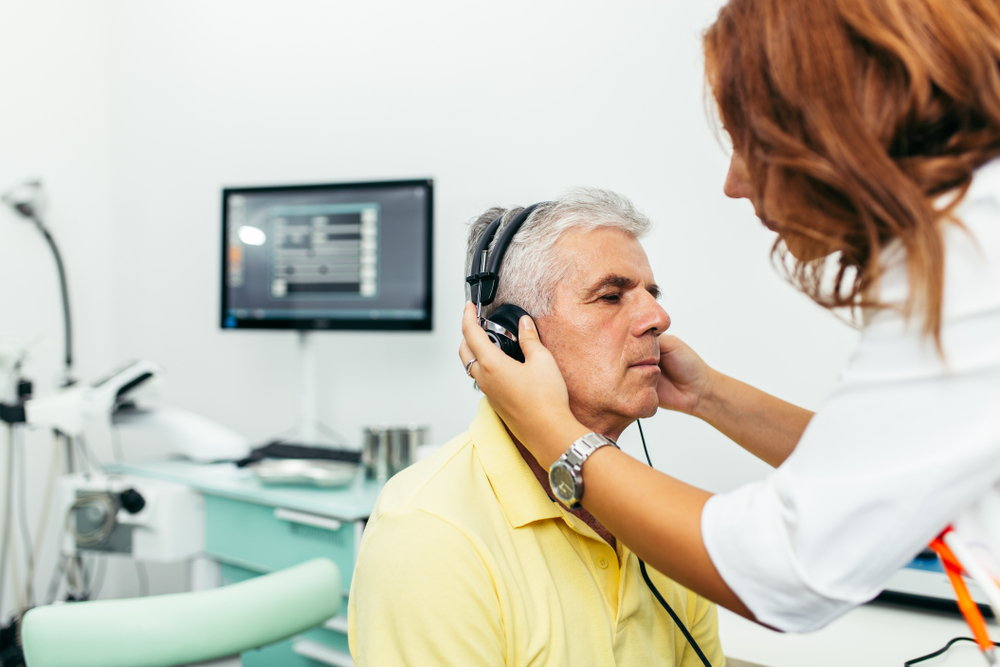Hearing loss has a reputation for showing itself slowly. This can make the symptoms easy to miss. (After all, you’re just turning up the volume on your television once in a while–it’s nothing to worry about, right?) That’s usually the case, yes, but not always the case. It turns out hearing loss can also occur suddenly and without much warning.
When our health suddenly changes, it tends to get our attention (one might even describe the emotion as “alarm”). For example, if your hair falls out a little bit at a time, it’s no big deal–you’re just going bald! But if all of your hair fell out overnight, you would likely feel compelled to make a doctor’s appointment as soon as possible (and rightfully so).
The same is true when you develop sudden hearing loss. There are some very good reasons why acting fast is a good idea!
What is sudden hearing loss?
Sudden hearing loss (sometimes known as sudden deafness or sudden sensorineural hearing loss–or just SSHL for short) is not typically as common as the longer-term type of hearing loss most people experience. But it’s not exactly rare, either. Somewhere around 1 in 5000 people a year suffer from SSHL.
The symptoms of sudden hearing loss usually include the following:
- The loss of 30dB or greater in terms of your hearing. That is, the world sounds 30dB quieter from whatever your previous baseline had been. (You won’t be able to measure this on your own–it’s something your provider will diagnose. However, it will be noticeable.)
- In 9 out of 10 cases, sudden hearing loss impacts only one ear. That said, it is possible for SSHL to impact both ears.
- As the name implies, sudden deafness usually occurs rapidly. This typically means that sudden hearing loss develops over a matter of hours or days. In fact, most people wake up in the morning wondering what’s wrong with their ears! Or, they might take a phone call and wonder why they can’t hear anything on the other end.
- Some people notice a loud “pop” before their hearing begins to disappear. But this is not always the case. It’s possible to experience SSHL without hearing this pop.
- Some people may also experience a feeling of fullness in the ear. Or, in some cases, a ringing or buzzing in the ear. Again, these symptoms are not experienced by everyone who develops SSHL, but they are relatively common.
If you experience SSHL, you might be wondering: is sudden deafness permanent? Well, roughly half of everyone who experiences SSHL will get better within two weeks. However, it’s important to note that one key to success is rapid treatment. This means you will want to undergo treatment as quickly as possible. You should schedule an appointment within 72 hours of the onset of your symptoms.
In most cases, it’s a good idea to treat sudden hearing loss as a medical emergency. The longer you delay treatment, the greater your risk of sudden hearing loss becoming permanent.
So… what causes sudden hearing loss?
Some of the top causes of sudden hearing loss include the following:
- Ongoing exposure to loud noise, such as music: For most people, loud noise will cause a gradual decline in hearing. But for some, that decline in hearing may occur suddenly.
- Illnesses: Diseases such as mumps, measles, meningitis, and multiple sclerosis have all been known to cause SSHL–for wildly different reasons. (This is a good reason to get immunized against diseases for which there is a vaccine.)
- Head trauma: A traumatic brain injury can do much to disrupt the communication between your brain and your ears.
- A reaction to drugs: This could include common drugs such as aspirin. Usually this also includes cisplatin, quinine, or streptomycin and gentamicin (the last two of which are antibiotics).
- Genetic predisposition: In some cases, an increased risk of sudden deafness can be passed along from parents to children.
- Problems with your blood flow: This could include anything from a high platelet count to a blockage of the cochlear artery.
- Reaction to pain medication: Overuse of opioid-related drugs and pain medication can increase your risk of developing sudden hearing loss.
- Autoimmune disease: In some cases, your immune system begins to think that your inner ear is a threat. This type of autoimmune disease can easily lead to SSHL.
For a portion of patients, knowing what type of sudden hearing loss you have will help your hearing specialist develop a more effective treatment. But this isn’t always the case. Many types of SSHL are treated similarly, so knowing the precise cause is not always necessary for successful treatment.
What should you do if you have sudden hearing loss?
So, if you wake up in the morning and suddenly discover you can’t hear anything, what should you do? Well, there are some important steps you should take right away. First and foremost, you should not just wait for it to go away. That won’t work very well. Instead, you should seek treatment within 72 hours. It’s best to make an appointment with a hearing specialist immediately. They’ll be in the best position to help you determine what’s wrong and how to treat it.
While at your hearing specialist’s office, you may undergo an audiogram to determine the level of hearing loss you’re experiencing (this is the test where they make you wear headphones and raise your hand when you hear beeping–it’s completely non-invasive). They will also rule out any blockages or a possible conductive cause for your hearing aid.
For most patients, the first course of treatment will likely include steroids. For some patients, these steroids may be injected directly into the ear. For others, pills may be able to generate the desired effects. Steroids have proven to be very effective in treating SSHL with a wide variety of root causes (or with no known root cause). For SSHL caused by autoimmune disease, you may need to take medication that suppresses your immune response.
Have you or someone you know suddenly lost hearing? Get it checked out as soon as possible! Search for a hearing specialist near you.



